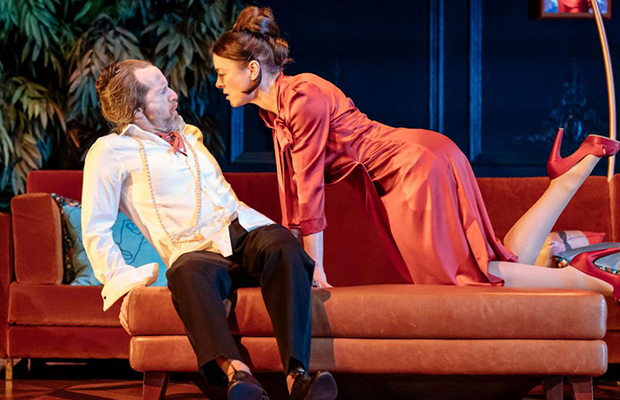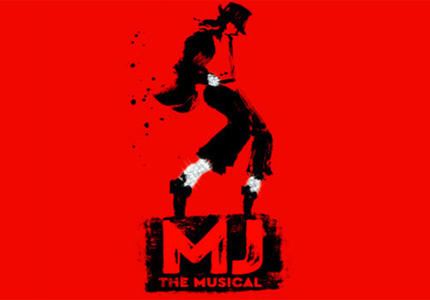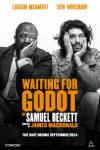Tartuffe Review National Theatre
“Thoroughly entertaining throughout”
One could call Molière France’s answer to Shakespeare. He’s been lauded as the greatest writer in the French language, and his plays written in the 17th century were originally written in similarly complex verse. The National Theatre’s production of Tartuffe brings the story into the 21st century with John Donnelly’s new adaptation of the 1664 comedy, which uses modern prose and reference ideas such as feminism, champagne socialism and even bad slam poetry.
Patriarch Orgon brings the supposedly spiritual Tartuffe into his household, much to the chagrin of his family. Orgon’s increasing obsession with Tartuffe prevents him seeing that Tartuffe wants to seduce his wife Elmire. Orgon is wants Tartuffe to become part of the family, so develops a plan to force his young daughter Mariane to marry Tartuffe, despite her love for Valère, a ‘street poet’ in Donnelly’s updated version of the classic. Her refusal is set to see her banished from the house, as Orgon’s son Damis has been as he tries to oust Tartuffe. Despite appeals from his children, housekeeper and brother-in-law it takes Elmire engineering Tartuffe being caught in the act for Orgon to see his true colours and banish him from the house. This causes further problems as Tartuffe has evidence of Orgon’s criminal misdeeds, but is swiftly resolved by the intervention of the authorities, who swoop in and bang Tartuffe to rights.

Denis O’Hare (American Horror Story) plays an exaggerated, heavily accented Tartuffe who is nonetheless recognisable as the kind of pseudo-spiritual hippie-styled type to be found at festivals and backpacker hostels worldwide. Tartuffe doesn’t appear in the first third of the play though, and the most exciting parts are played by Olivia Williams, Kitty Archer and Kathy Kiera Clarke, as Elmire, Mariane and housekeeper Dorine respectively. Each of them confronts Orgon with their unwillingness to be powerless to his machinations, with extended, biting speeches asserting their independent characters.
This all takes place in a lavish, vibrantly coloured set that, while indicating the family’s excessive wealth, is also just gorgeous to look at.
Molière’s original plot is not only modernised, but also politicised. There are lots of knowing nods to the audience, with jokes poking fun at the champagne socialists who probably made up the best part of the audience. This social critique is driven home in the last scene, with the suggestion that Tartuffe’s behaviour was perhaps understandable given the adversity he has seemingly faced, and parallels are clearly drawn with modern wealth disparity. These concepts are put across perhaps a little heavy-handedly, but we’re nonetheless left with the uneasy feeling that Orgon and his family are largely saved from trouble due to their wealth and position, and perhaps shouldn’t have gotten away quite so scot free.
Thoroughly entertaining throughout, the National Theatre’s production of Tartuffe leaves us with some food for thought as to whether we need to have our morality challenged, and if those of us with supposedly leftie politics could put our money where our mouth is. There are some great lines, capturing ideas that are excitingly relevant politically and culturally, if expressed in a slightly on-the-nose way.

Review by Jennifer Jackson









